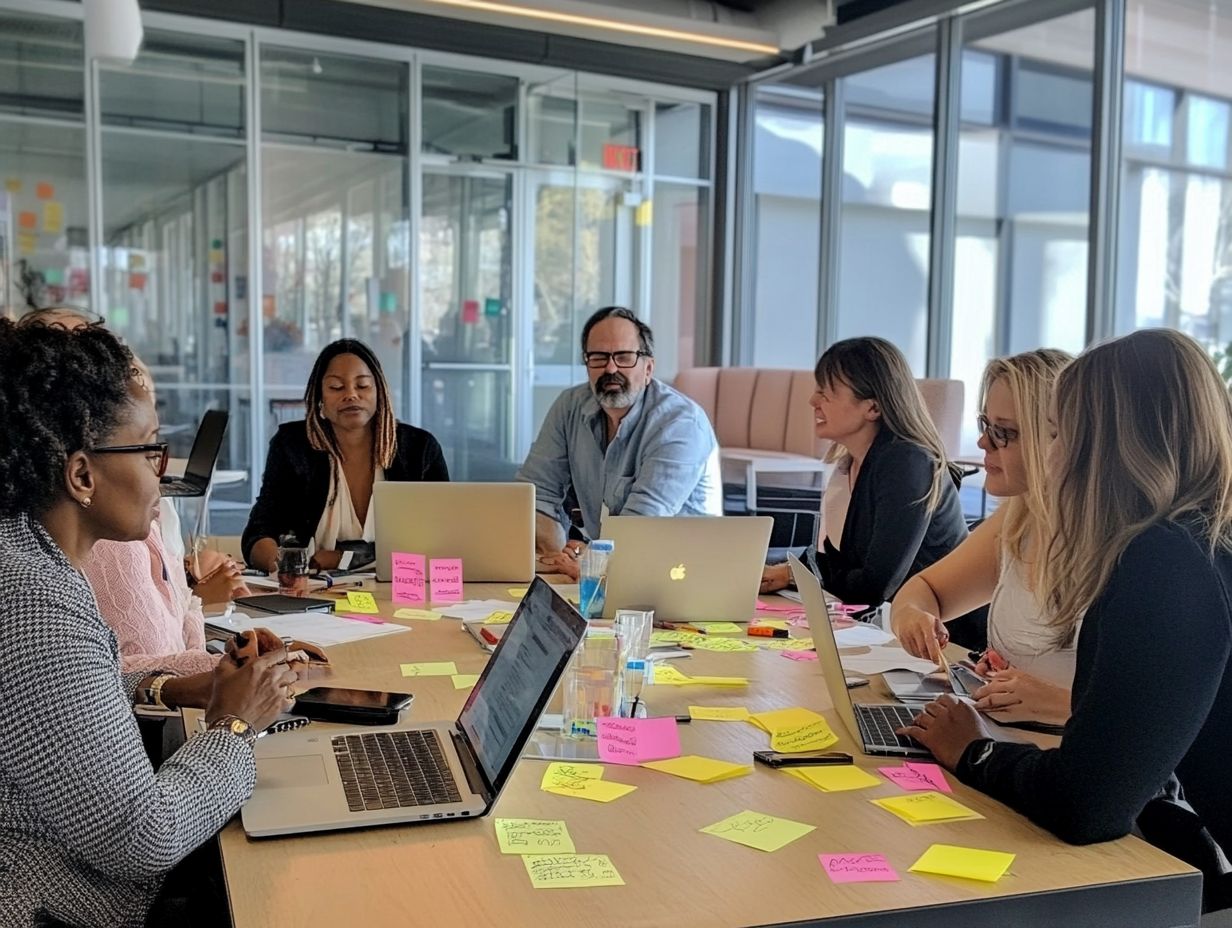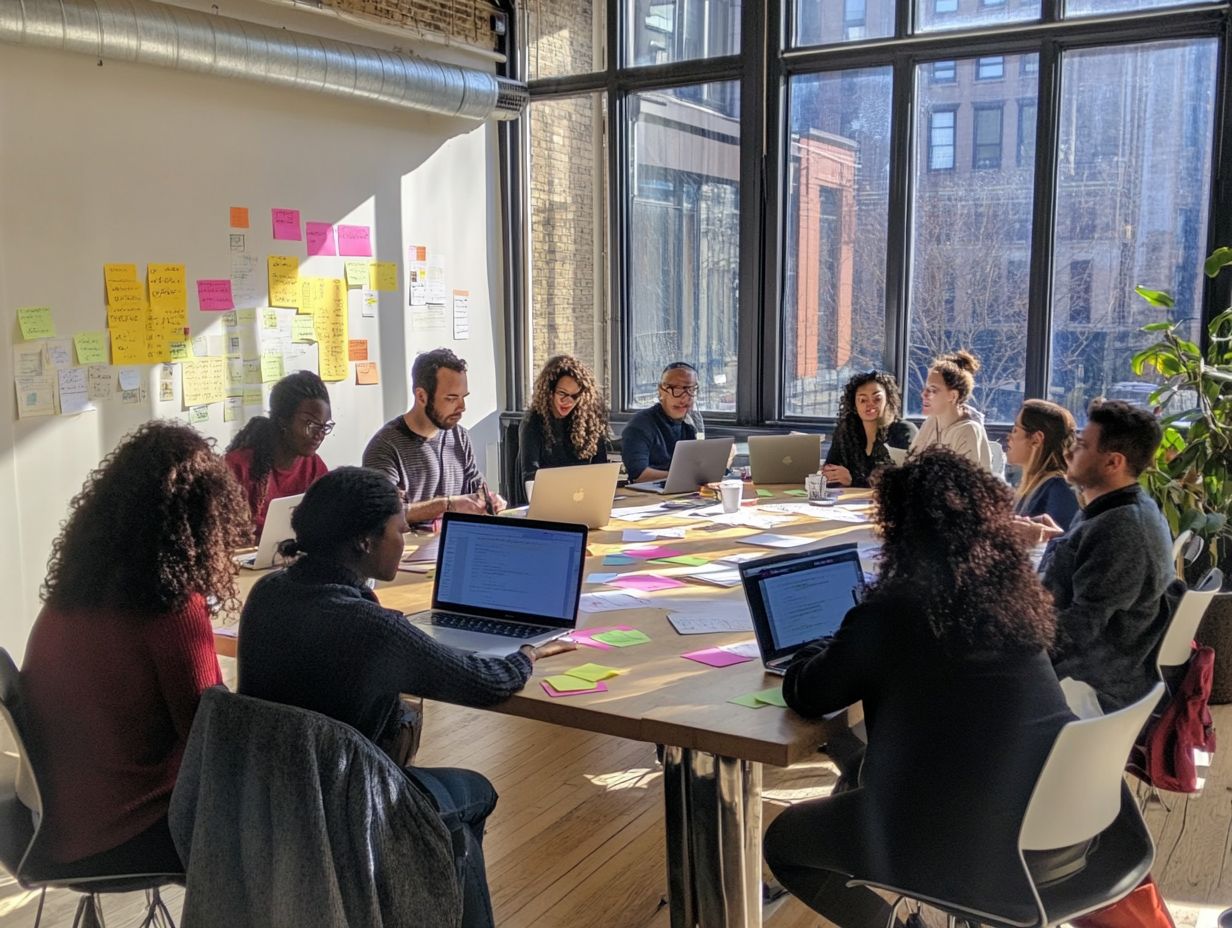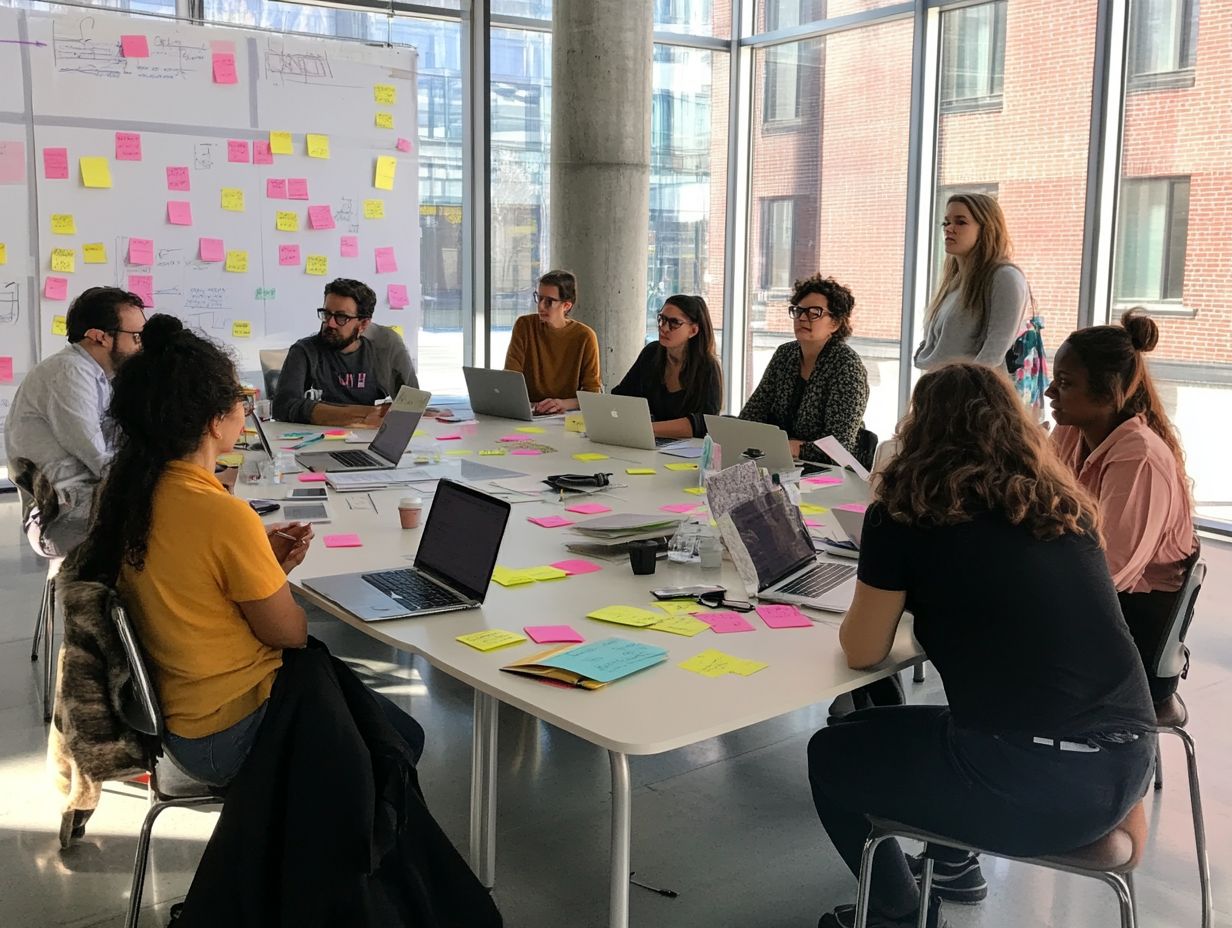Productivity is not merely a buzzword; it serves as the cornerstone for achieving our goals, optimizing our time allocation, and maximizing our potential. In short, how to get stuff done!
In this discussion, we will delve into the true meaning of productivity and explore its significance for both personal and professional success. We will identify common roadblocks like procrastination and distractions that hinder progress and provide practical strategies, such as goal setting and task prioritization, for overcoming these challenges.
From effective time management techniques, actionable steps, and scheduling methods to tips for maintaining motivation, you will discover actionable insights designed to enhance your focus, optimize your workflow, and help you accomplish your tasks.
We invite you to join us on this journey to unlock your full productivity potential through effective planning, organization, and execution strategies.
Understanding Productivity
Understanding productivity is crucial for improving performance in all aspects of life, both personal and professional. It involves managing time effectively, setting achievable goals, and consistently nurturing the motivation necessary to reach desired outcomes.
This concept highlights not only the importance of prioritizing tasks but also the cultivation of effective habits and structured routines that can streamline workflow and help meet deadlines without sacrificing quality. By adopting a productive mindset, individuals can gain clarity of purpose and enhance overall efficiency while also maintaining a healthy work-life balance.
Defining Productivity and its Importance
Productivity can be understood as the ability to effectively achieve desired outcomes through efficient time management, self-discipline, and a focused approach to tasks by leveraging tools and techniques that enhance performance.
In today s fast-paced environment, grasping this concept is essential for anyone aiming to enhance their performance and attain meaningful results. Whether one is in a professional setting or managing personal projects, a high level of productivity typically correlates directly with success.
Individuals who develop efficient habits not only meet their deadlines but also experience reduced stress levels and greater satisfaction with their work. By harnessing productivity in both personal and professional contexts, one can foster enhanced creativity, improved problem-solving skills, and a clearer pathway to personal development, ultimately contributing to a culture of achievement and fulfillment. Moreover, consistent self-reflection and evaluation can further optimize personal systems and lead to continuous improvement.
Identifying Roadblocks to Getting Things Done
Identifying roadblocks to productivity is essential for anyone aiming to enhance their efficiency and effectiveness. Common challenges like procrastination, distractions, and poor energy management can greatly impede one s ability to concentrate and manage tasks efficiently.
Recognizing these obstacles is the initial step toward creating strategies that can reduce their impact and promote smoother workflows. By tackling inefficiencies and improving task management skills through effective decision-making and prioritization, individuals can substantially boost their performance and consistently reach their goals.
Common Obstacles and How to Overcome Them
Common obstacles, such as procrastination, distractions, lack of urgency, and poor mental clarity, can significantly hinder productivity and focus, making it difficult to stay on track and achieve one’s goals.
These challenges often arise in everyday situations, such as mindlessly scrolling through social media during work hours, being sidetracked by unexpected interruptions from colleagues, or feeling overwhelmed by a lengthy to-do list that seems intimidating.
To effectively combat procrastination, breaking tasks into smaller, manageable steps can foster a sense of accomplishment and help maintain motivation. Additionally, limiting distractions by creating a dedicated workspace or employing techniques like the Pomodoro Technique can promote a more focused environment. Incorporating mindfulness practices can also enhance mental clarity and attention span, leading to improved execution of tasks.
Establishing clear deadlines and setting specific priorities can instill a sense of urgency, driving individuals toward their objectives with renewed energy and clarity. Utilizing a prioritization matrix can also aid in decision-making, ensuring that critical tasks are addressed promptly.
Effective Time Management Strategies
Effective time management strategies are crucial for maximizing productivity and ensuring that tasks are completed within set timelines. By incorporating structured planning and prioritization techniques, such as time blocking and task breakdowns, individuals can use their time more efficiently and concentrate on actions that yield the most significant results.
Employing scheduling methods, such as time blocking, along with various efficiency tools, and workflow automation can establish a strong workflow that reduces procrastination and improves accountability. These approaches not only enhance task management but also promote a healthier work-life balance and personal growth through effective self-regulation and resilience strategies.
Planning and Prioritizing Tasks
Planning and prioritizing tasks effectively is fundamental to successful time management, which can lead to enhanced productivity and greater clarity.
By taking the time to outline objectives and breaking them down into manageable steps, individuals can not only alleviate feelings of overwhelm but also sharpen their focus on essential tasks. Utilizing tools such as checklists and task management software can be very helpful in tracking what needs to be accomplished while also providing a satisfying sense of achievement as items are marked off.
Setting clear deadlines for each task can serve as a motivating factor, helping individuals maintain their momentum and stick to their schedules. Furthermore, having actionable items derived from a well-structured plan allows for a degree of flexibility, enabling individuals to adjust as needed while ensuring that critical tasks remain a priority. This approach also aids in better energy management and cognitive load reduction, which are essential for long-term productivity.
Eliminating Distractions
Eliminating distractions is essential for enhancing focus and concentration, ultimately leading to increased productivity and more efficient task execution. Managing one’s attention span through regular mindfulness practices can also contribute to more effective work habits.
In today s fast-paced world, many people struggle with numerous interruptions, which can include constant notifications from smartphones, background noise in busy office environments, and the enticing pull of social media. To address these challenges, it is crucial to implement effective strategies that manage energy levels and create a more conducive workspace.
For example, establishing designated work areas that minimize noise can significantly aid in maintaining concentration. Techniques like the Pomodoro Technique can be particularly helpful, as they allow tasks to be broken into manageable intervals, including short breaks to recharge, which reinforces focus when returning to work. Additionally, implementing consistent routines and energy management strategies can further enhance one’s ability to concentrate and perform tasks efficiently.
Additional strategies might involve setting specific times to check devices or utilizing applications that block distracting websites during dedicated work periods.
Tips for Staying Motivated and Focused
Maintaining motivation and focus when faced with challenges is essential for sustaining productivity, and there are several effective strategies to achieve this.
- Setting clear goals creates a roadmap for progress and fosters intrinsic motivation.
- Establishing a reward system can also enhance commitment to achieving those goals by providing clear incentives.
- Furthermore, cultivating self-motivation through positive reinforcement and visualization techniques, along with regular self-reflection, can significantly boost engagement and drive to succeed.
By incorporating these strategies, one can maintain the focus necessary to navigate obstacles and reach their objectives while avoiding burnout.
Setting Goals and Rewards
Establishing clear goals and implementing a rewards system can greatly enhance motivation and productivity while providing a meaningful sense of purpose.
When individuals define specific and measurable objectives, such as SMART goals, they essentially create a roadmap that guides their actions and decisions. This clarity fosters a strong sense of direction and enables them to prioritize their efforts more effectively.
Additionally, incorporating a rewards system can further boost this motivation. Acknowledging and celebrating achievements, whether they are significant milestones or smaller victories, cultivates a positive feedback loop that reinforces their drive. This approach also helps in building a results-oriented mindset that is crucial for long-term success.
Ultimately, by embracing goal setting and reward mechanisms, individuals can unlock greater productivity and fulfillment in both their personal and professional lives, paving the way for sustained success and a continuous improvement mindset.
Utilizing Accountability and Support Systems
Utilizing accountability and support systems is essential for enhancing motivation and improving performance in productivity-driven tasks. These systems play a key role in fostering commitment and perseverance, aiding in the consistent execution of tasks.
When individuals work in collaborative environments that promote peer support, they often develop a stronger sense of responsibility toward their goals. These systems not only foster camaraderie but also create an atmosphere conducive to constructive feedback, which can help refine strategies and approaches.
The presence of feedback loops allows for continuous monitoring of performance, enabling necessary adjustments that help maintain focus and improve outcomes. As team members communicate actively and share their progress, they encourage one another’s engagement and drive. Regular evaluations and assessments can further refine these processes, leading to enhanced performance metrics.
This collaboration ultimately leads to the collective achievement of results that are both meaningful and impactful, fostering a culture of effective communication and adaptability.
Frequently Asked Questions
What is the best way to get stuff done?
The best way to get stuff done is to create a to-do list and prioritize your tasks using tools like a prioritization matrix. Identify the most important tasks, allocate your time accordingly, and employ effective time management strategies such as time blocking and task breakdowns.
How can I stay motivated to get stuff done?
Staying motivated involves setting clear goals, establishing a rewards system, and utilizing accountability mechanisms. Regular self-reflection, maintaining a results-oriented mindset, and incorporating self-care practices can also help sustain long-term motivation and prevent burnout.
Set achievable goals and reward yourself when you accomplish them. Also, break down larger tasks into smaller, more manageable ones to make them less overwhelming.
What are some useful productivity hacks for getting stuff done?
Some useful productivity hacks include setting a timer for each task, minimizing distractions, and taking short breaks to recharge your brain.
Is multitasking an effective way to get stuff done?
No, multitasking can actually decrease productivity and lead to more mistakes. It’s better to focus on one task at a time and give it your full attention.
How can I overcome procrastination and get stuff done?
One way to overcome procrastination is to break down your tasks into smaller, more manageable chunks. This will make them less daunting and easier to start. Also, try to eliminate distractions and set specific deadlines for each task.
What should I do if I’m feeling overwhelmed with all the things I need to get done?
If you’re feeling overwhelmed, take a step back and reevaluate your to-do list. Prioritize your tasks and delegate any tasks that can be done by someone else. Don’t be afraid to ask for help when needed.










